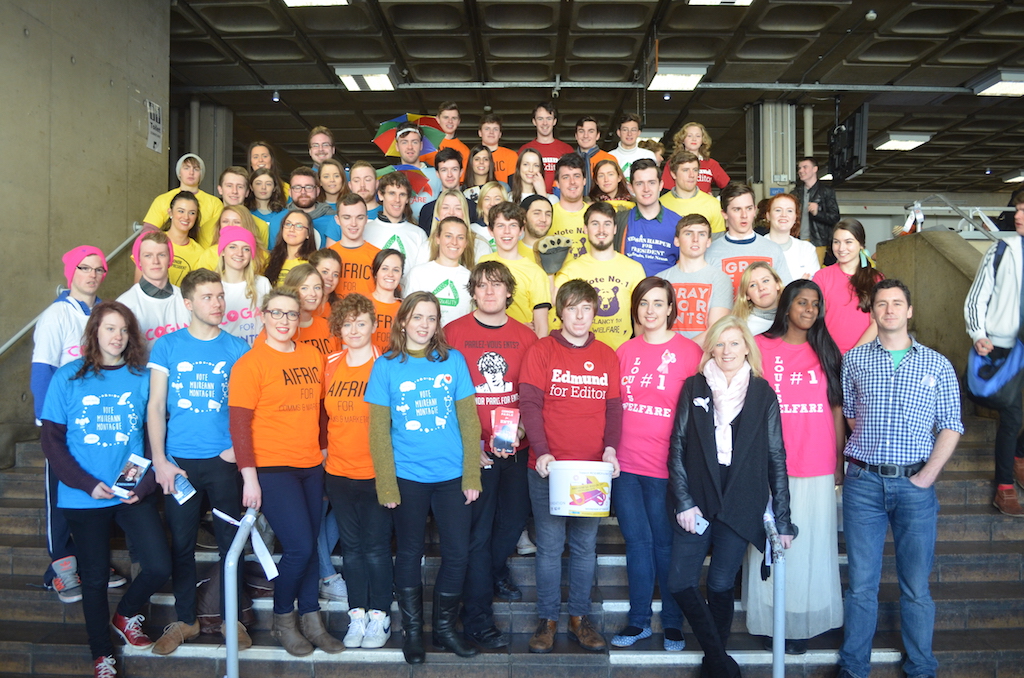Aisling Curtis | Senior Staff Writer
It’s hard to know the precise shades and flavours of an experience when it’s not your own. The difference between empathy and sympathy may be nebulous, but someone who knows the generalities of an experience can never be as knowledgeable as one with a grasp of the ins-and-outs. The most elementary aspect of an SU Officer’s job is that they must represent the student body as an overarching whole; and yet we find increasingly that the wider student body doesn’t care to engage, doesn’t feel that their SU speaks for them or affects their lives in a meaningful way.
I’ll willingly put my hand up and say that I can’t know the intricacies of identifying anything other than heterosexual. I have never faced implicit racial prejudice, never been a mature student, never juggled young children while attending college, never had a mental or physical disability. Although I advocate for the rights of those who have, there are naturally going to be aspects of those diverse experiences that I wouldn’t see. What does a struggling single mother have in common with the majority-male sabbats? How does a mature student explain the minutiae of their barriers to a 21-year-old? When your elected representatives are not representative of you, it can be hard to hear any relevance in the things they say.
If the SU wants to appeal to more students – something that candidates throw about every year – then it needs to become more relevant to a greater variety of interests.
Many of the sabbats are educated and sympathetic individuals, who are undoubtedly excellent at dealing with many of the student issues that come their way. They couldn’t be expected to have personal knowledge of every single concern. But personal experience is a driving factor behind much change, and the lack of it may be why we keep hearing the same problems raised every year, candidates saying again and again that “this must stop” and “that will change”. But if you’ve never felt the difficulties and complexities and hurdles of a certain experience, can you truly feel passionate about what needs to be resolved?
Education Officer Katie Byrne’s campaign to increase female candidacy has been overwhelmingly successful, with an even gender split running for election in next week. The #LeadTCD anonymous recommendation system has also brought greater diversity. However, the current system of campaigning unfairly benefits those who have more natural allies to draw from – maybe because they went to Dublin secondary schools, or were involved in major societies, or are students in BESS, Science, Medicine, Engineering – those courses with hundreds in a single year. Of the sabbats who were contested last year, all of them came from large courses with over 100 students in a year.
We’ve heard the same old stuff year on year; it’s time we open the stage to those with something different to say.
The campaigning process demands a large contingent of people willing to raise awareness of your name and ideas, as well as a visible social media presence, also contingent upon having lots of people who will share your manifesto, like your page, promote your ideas. This implicit requirement explicitly eliminates those who don’t have this support. Naturally, for some positions it’s essential that a candidate is likeable, outgoing, charismatic: a President or Ents officer, for example, needs to be able to drum up support from college bodies and from students, needs to be able to enthuse and inspire, and needs to be sufficiently extroverted to carry out their role. However, for other positions, a shyer person might perform better or just as well. And a sabbat doesn’t need a major following once they have the role – the job itself is independent of the popularity contest that the race can become.
If the SU wants to appeal to more students – something that candidates throw about every year – then it needs to become more relevant to a greater variety of interests. To do so, it must embody the diversity that it wishes to embrace. This isn’t to say that candidates shouldn’t run if they aren’t from non-traditional backgrounds or haven’t lived certain experiences, but that we must recognise the barriers that prevent others from succeeding, too. Such barriers may be invisible, pervasive: mature students may know less people in College; transgender students may be reluctant to raise their profile and subject themselves to intolerance. And solutions will likely be just as complex as the causes themselves: possibly limiting the sizes of campaign teams, or other focused endeavours to encourage students to run.
Nevertheless, we need to pay more attention to the homogeneity of the current state of affairs. New perspectives would encourage new solutions, and possibly make a difference to many students who feel neglected by and alienated from their SU. We’ve heard the same old stuff year on year; it’s time we open the stage to those with something different to say.







